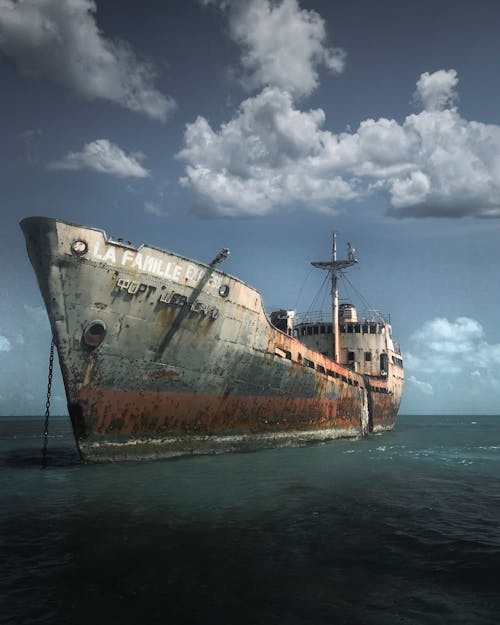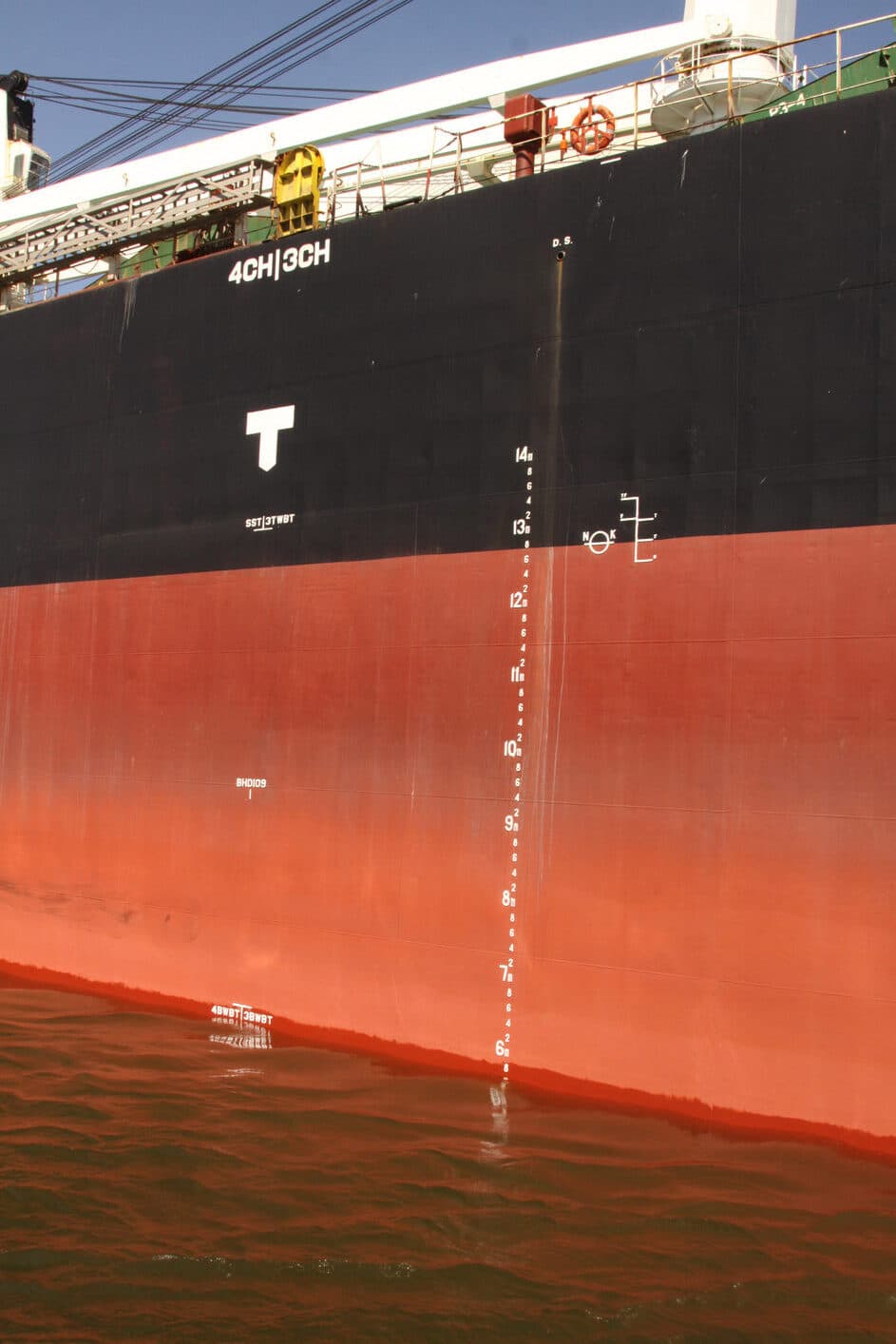The ocean is both a pathway and a challenge for ships. While it allows for global trade, it also brings relentless exposure to saltwater, humidity, and oxygen, creating a corrosive environment that constantly threatens a vessel’s integrity. That’s why corrosion protection systems in marine environments aren’t just maintenance; it’s mission-critical.
While Impressed Current Cathodic Protection (ICCP) is a go-to method for many modern vessels, it’s not the only option. Today’s shipping industry is exploring advanced alternatives that go beyond ICCP to enhance reliability, reduce costs, and extend the life of vessels.
Corrosion in Ships: Why It Happens

Corrosion is a natural electrochemical reaction where metals like steel deteriorate due to contact with water, oxygen, and salts. On ships, this is most aggressive around the ship’s hull, ballast tanks, and submerged structures, areas in direct contact with marine environments.
Seawater is a potent electrolyte, and ships act like giant electrochemical cells. When exposed steel surfaces come into contact with seawater, electrons start moving, causing pitting corrosion, bacterial corrosion, and, over time, structural failure if unchecked.
Corrosion Prevention: The Basic Principle
The science of corrosion prevention hinges on disrupting the electrochemical reaction. This can be achieved through:
-
Coatings: to isolate the metal surface from seawater.
-
Cathodic protection: to redirect or neutralize the corrosive currents using sacrificial anodes or an external power source.
-
Design considerations: to minimise water traps and mechanical damage.
What Is Impressed Current Cathodic Protection (ICCP) and How Does It Work?
ICCP is a widely used cathodic protection system that uses an external power source to apply a protective current to the ship’s metal structures. This current flows in the negative direction, turning the vessel’s hull into the cathode of an electrochemical cell.
The system typically consists of:
-
Inert anodes: made of materials like titanium coated with mixed metal oxides
-
A DC power source: (usually transformer rectifiers)
-
Reference electrodes: are used to monitor the potential and regulate current flow
This setup ensures the steel surface remains protected from corrosion, even in harsh waters. ICCP is especially effective for larger ships where sacrificial anodes alone may not provide sufficient current.
Anti-Corrosion Methods in Marine Environments
There are two main methods of cathodic protection:
-
Impressed Current Systems (ICCP)
-
Galvanic Cathodic Protection (GCP) using sacrificial anodes

Source: Wikipedia
Both methods aim to prevent corrosion by making the ship’s hull the cathode. However, they differ in scale, cost, and performance.
Additional strategies include:
-
Advanced coatings :(epoxy, ceramic, or nano-coatings)
-
Protective barriers: like wraparound sleeves
-
Corrosion inhibitors: added to ballast tanks
Why Go Beyond ICCP?
While ICCP systems are effective, they come with installation complexity, maintenance costs, and dependency on external power. In dynamic operating conditions, failures can go unnoticed until damage has occurred.
Moreover, with evolving vessel designs, longer operational cycles, and stricter regulations, shipowners are looking for hybrid or alternative solutions that offer:
-
Better adaptability to varying soil resistivity
-
Compatibility with mild steel, aluminium, and complex alloys
-
More cost efficiency over time
-
Reduced environmental impact from materials like zinc anodes
Alternative Corrosion Protection Systems in Modern Vessels
1. Hybrid ICCP-Galvanic Systems
A combination approach that balances the limitations of both impressed current and sacrificial anode systems.
These systems combine the strengths of both methods, using sacrificial anodes to protect areas where ICCP is less effective (e.g., rudders and propellers) and ICCP to protect the hull. This allows for wider corrosion control and longer system life.
Key Benefits:
-
Effective for complex geometries
-
Extends protection to critical components
-
Enhances ICCP system longevity
2. Organic and Inorganic Coatings

Protective coatings that serve as the first line of defence against corrosion.
High-performance coatings reduce dependence on cathodic systems altogether. Ceramic-reinforced epoxies or metallic zinc-rich paints act as both barrier and sacrificial layer, slowing the corrosion rate drastically.
Key Benefits:
-
Dual-function: barrier + sacrificial action
-
Lowers long-term maintenance costs
-
Ideal for ballast tanks and void spaces
3. Nano-Coatings
Advanced, ultra-thin coatings engineered for durability and precision protection.
These ultra-thin layers offer chemical resistance and can self-heal microcracks, providing superior corrosion prevention without altering ship weight or hydrodynamics.
Key Benefits:
-
Self-healing surface technology
-
Lightweight and non-intrusive
-
Excellent for aggressive marine environments
4. Smart Sensor-Driven Protection
Next-gen systems that monitor and adjust corrosion protection in real time.
Sensor-integrated systems adjust cathodic protection current in real time, reacting to changes in potential difference and water chemistry. These are supported by corrosion engineers via remote monitoring for better predictive maintenance.
Key Benefits:
-
Real-time protection tuning
-
Enables predictive analytics
-
Reduces unplanned dry-docking
5. Electro-Magnetic Shielding
A developing technology that uses magnetic fields to break the corrosion cycle.
Still in experimental stages, this method uses magnetic fields to disrupt electron flow, aiming to stop the corrosion cycle altogether, potentially revolutionising corrosion control in the future.
Key Benefits:
-
No coatings or anodes needed
-
Potential to eliminate corrosion at the source
-
Being trialled for long-term feasibility
How These Alternatives Help
Modern corrosion protection techniques:
-
Reduce material wastage and avoid mechanical strength loss
-
Support fuel efficiency by maintaining hull smoothness
-
Extend vessel life, reducing total ownership cost
-
Allow greater operational uptime by lowering maintenance demands
-
Help maintain cost efficiency without compromising safety
They also reduce environmental concerns linked to frequent anode replacement and metal runoff in sensitive waters.
Upcoming Technology and Trends
-
AI-Based Corrosion Monitoring
AI systems can process data from onboard sensors to detect early signs of corrosion. This helps plan maintenance without unnecessary dry-docking. -
Eco-Friendly Anodes
Developments in metallic zinc and magnesium alloys aim to create low-cost, high-performance galvanic anodes with minimal environmental impact. -
Modular CP Systems
New designs allow parts of the CP system to be replaced without taking the whole ship offline, cutting downtime and costs. -
Machine-Learning Guided Coating Selection
Software models now help shipbuilders choose the ideal coating formulation based on vessel type, operating region, and corrosive environment factors.
Conclusion
Protecting a ship from corrosion is more than just good maintenance, it’s key to operational excellence, economic growth, and crew safety. While Impressed Current Cathodic Protection (ICCP) remains a vital tool, it’s not the only one. Today’s ships demand smarter, more sustainable, and adaptive systems.
By combining coatings, cathodic protection, and data-led monitoring, the shipping industry is moving beyond tradition into a new era of corrosion resilience, where ships last longer, perform better, and cost less to run.
FAQs
What is the main difference between ICCP and sacrificial anodes?
ICCP uses an external power source to supply protective current, while sacrificial anodes corrode themselves to protect the metal surface.
Are coatings alone enough to prevent corrosion?
No. Coatings act as a first line of defence, but in marine settings, they are usually combined with cathodic protection systems for full coverage.
What types of ships benefit most from hybrid systems?
Large cargo ships, tankers, and vessels operating in highly corrosive environments benefit from hybrid ICCP-Galvanic setups.
Why is real-time monitoring important for corrosion control?
It helps maintain sufficient current, detect coating damage, and ensure compliance, especially when operating in variable salinity or marine environments.
Can newer corrosion systems reduce long-term maintenance costs?
Yes. By improving corrosion prevention, reducing mechanical damage, and enabling predictive maintenance, they help shipowners lower the total cost of ownership.

